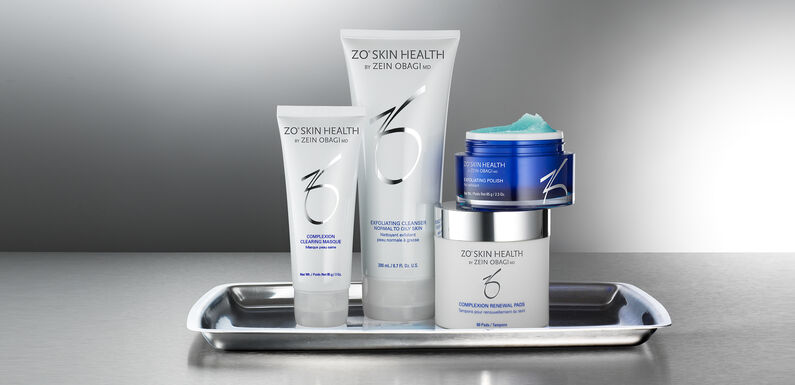Acne |
Blemish Myths Debunked
By ZO® Skin Health
Blemishes are one of the most common skin conditions, affecting nearly fifty million Americans annually, as cited by the American Academy of Dermatology. Adolescents and teenagers tend to experience symptoms the most in both frequency and intensity. However, there are many adults that suffer from blemishes as well. This month is Blemish Awareness Month, which is the perfect time to learn the realities of this skin disease and debunk some of its most common myths.
To treat blemishes, it is important to understand what it is. The common blemishes, flare-ups and scarring are easily recognizable, but what exactly causes them? To put it simply, blemishes occurs in the skin when there is an overabundance of oil, dead skin cells, dirt or bacteria clogging up hair follicles. Other factors, such as hormones, stress levels, and increased oil production in the skin can trigger blemishes. Types of blemishes range from, but are not limited to, whiteheads, blackheads, nodules, and cysts. Typically, blemishes appear on the face, chest and back.
If you suffer from blemishes, it is more than likely that you have been providing numerous advice regarding treatment or preventative care. However, many of these recommendations are not grounded in truth. Below are some of the most common blemish myths.
Blemishes heal themself. This myth coincides with another that blemishes only occur in teenagers. Any age can develop blemishes, and it is important to seek treatment, since leaving it on its own can often cause it to worsen.
Popping pimples is okay. Blemish symptoms, such as the type of blemish, can be difficult to properly identify by non-skincare professionals. By popping pimples, it greatly increases the chances for irritation and scarring. It is recommended to see an aesthetician or dermatologist to handle treatments, such as extractions.
Avoid eating greasy foods. Consuming oil-rich food, such as fried food, does not worsen blemish symptoms. However, introducing additional oil to the surface of the skin can exacerbate blemishes. If you work in an environment that exposes you to oil, such as a professional kitchen, there is a chance that the excess oil can clog pores and follicles.
Cosmetics worsen blemishes. Using oil-free makeup and skincare products, or noncomedogenic, do not worsen blemishes. If using any makeup, it is important to cleanse your skin and thoroughly remove any product to ensure that it does not clog pores.
Blemishes only happen to dirty skin. Stress levels, hormonal imbalances and genetic factors play a role in blemishes. Although it is important to cleanse, exfoliate and tone skin to remove impurities, it is not the only contributing issue.
The sun is good for blemishes. Harmful rays and radiation from the sun irritate and damage the skin and can greatly increase the likelihood of scarring. Anytime you expose yourself to sunlight, it is vital to apply sunscreen.
Blemishes do not need to be treated by a doctor. There are many blemish treatments and products readily available at drug stores. Despite that, many people will utilize products that either worsen their blemishes or do not effectively treat symptoms. A professional can diagnose the skin condition and offer medical-grade skincare products and professional treatments that provide the best results.
To learn more about blemishes and how to incorporate treatments into your skincare protocol, talk to your ZO® authorized physician or find one near you.
